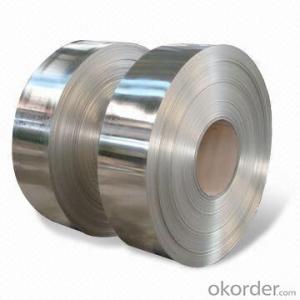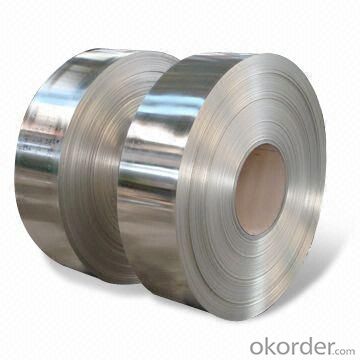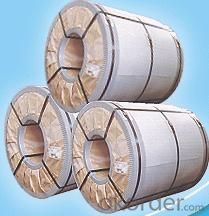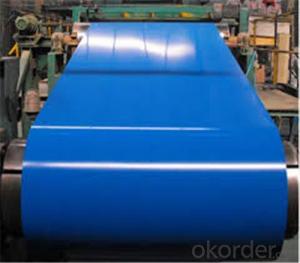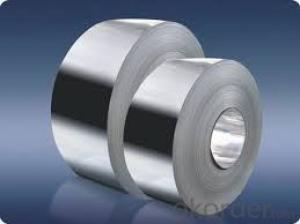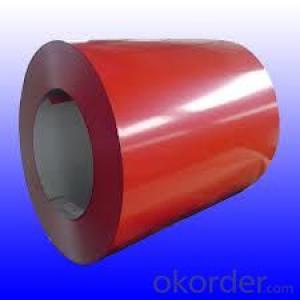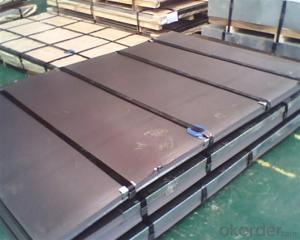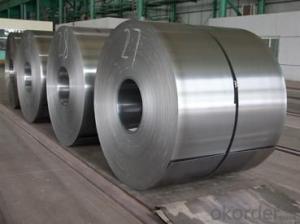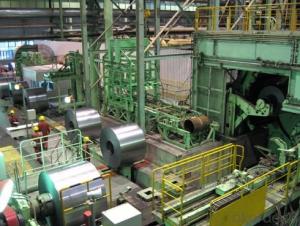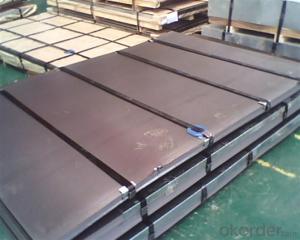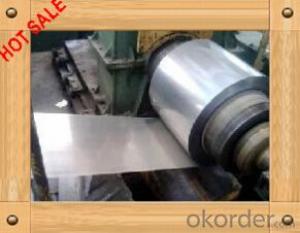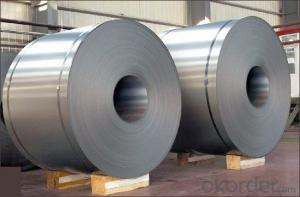Cold Rolled Steel Coil SPCC DC01 SPHC DC02
- Loading Port:
- Shanghai
- Payment Terms:
- TT OR LC
- Min Order Qty:
- 25 m.t.
- Supply Capability:
- 10000 m.t./month
OKorder Service Pledge
OKorder Financial Service
You Might Also Like
Quick Details
| Standard: | AISI, ASTM, BS, GB, JIS | Thickness: | 0.3-1.8mm | Place of Origin: | Hebei, China (Mainland) |
| Brand Name: | CNBM | Model Number: | cold rolled steel coils | Type: | Steel Plate |
| Technique: | Cold Rolled | Surface Treatment: | Coated, Bright finish, Plating | Application: | building and constructions |
| Special Use: | High-strength Steel Plate | Width: | 1250, 600-1250mm | Length: | as required |
| Coil ID: | 508/610mm | Grade: | Q195~Q345,SPCC/SPCD/DC01 | Coil weight: | 3-12 MT |
| Zinc Coating: | 30-275g/ m2 |
Packaging & Delivery
| Packaging Details: | Standard export seaworthy package |
| Delivery Detail: | Within 20 days after received the prepaid |
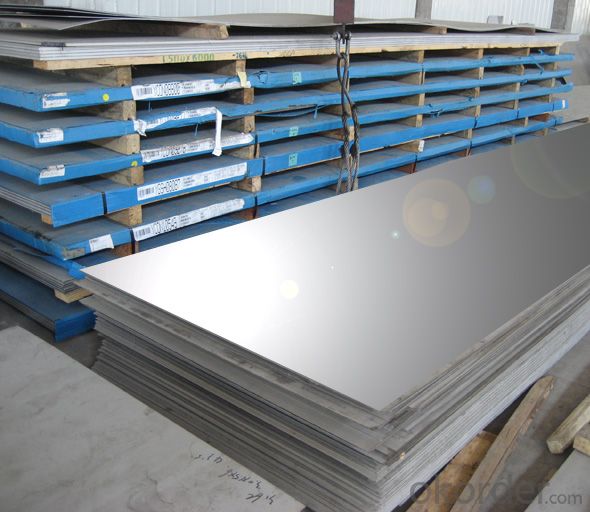
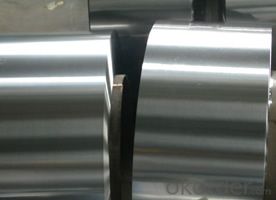
SPCC SPCD SPCE Cold rolled steel coil/sheet
Product details
| 1,product name | SPCD Cold rolled steel coil/sheet |
| 2,Standard | AISI,ASTM,BS,DIN,GB,JIS |
| 3,Executive standards | Q/HB04-2008(Cold Rolled Sheets and Strips) |
| 4,Inspection | ISO/BV/SGS |
| 5,certification | ISO9001 |
6,material | Q235B, Q345B, SPHC, SPHD,SPHE,510L , Q345A,Q345E |
7,steel grade | SPCC, SPCD, ST12, ST13, ST14/16, DC01, DC02, DC03, DC04, DC05, DC06, |
8,thickness | 0.16-3.5mm |
9,width | 900-1450mm |
10,surface treatment | coated&galvanized&bright/black annealed/unoil |
11,packing | Standard export packing or according to the clients required |
12,coil weight | 5-10tons |
13,Coil inner diameter | 508/610mm |
14,coil outer diameter | Max.Φ1500 or as your request |
15,usage/main application | transportation machine,Container Plate,chemical,building industry,automobile |
| 16,Product Category | galvanized,coated,spcc,spcd,spce,etc |
| 17, Spangle State | regular spangle, small spangle, big spangle, non-spangle |
| 18,Product Feature | High Surface Finish; Uniform coating thickness; High tensile strength(>600); Excellent atmospheric corrosion resistance,welding and cold forming performance; Leaf-shaped crystalline pattern; Beautiful Designed |
- Q: Why is iron used to create steel? Why not other elements?
- iron came before steel. iron is what was discovered that, under certain circumstances, became a stronger metal: steel. that is why. its like asking why copper is in bronze. because what we call bronze, is an alloy of copper and tin. if you give a more detailed question, i may be able to give a more detailed answer.
- Q: A friends of mine says he has balls of steel and i told him i would melt em off with lava. He said it wouldnt work. i disagree
- united is right! its hard to tell the temp... Because lava is not just obsidian, or pillow lava... its several different types of elements. It just depend on ground chemistry.
- Q: Are steel coils used in construction?
- Yes, steel coils are commonly used in construction. They are often used in the manufacturing of structural components, such as beams, columns, and trusses, as well as in the construction of metal buildings and infrastructure projects. Steel coils provide strength, durability, and versatility to various construction applications.
- Q: Can steel coils be reused?
- Yes, steel coils can be reused. Steel is a highly recyclable material, and steel coils can be melted down and used to produce new steel products. Recycling steel coils not only helps to conserve resources and reduce waste but also contributes to a more sustainable and environmentally-friendly manufacturing process.
- Q: How are steel coils processed for heat treatment?
- Steel coils are processed for heat treatment by first being cleaned and prepped for the treatment. They are then heated to a specific temperature and held at that temperature for a set period of time to achieve desired properties such as improved hardness or ductility. After heat treatment, the coils are slowly cooled down to room temperature to prevent any distortion or cracking.
- Q: What are the different types of steel coil slitting methods?
- There are three main types of steel coil slitting methods: rotary slitting, loop slitting, and oscillating slitting. Rotary slitting involves using a circular knife to cut the coil into smaller strips. Loop slitting involves creating a loop in the coil and then cutting it using a straight knife. Oscillating slitting involves using a reciprocating knife to make a back-and-forth motion while cutting the coil. These methods allow for precise and efficient slitting of steel coils into narrower strips.
- Q: What are the common defects in steel coil surface finishes?
- Scratches, pits, rust, oil stains, and uneven coating are all common defects that can be found on the surface finishes of steel coils. Scratches are typically caused by mishandling or transportation and can significantly impact both the appearance and performance of the coil. Pits, on the other hand, are small depressions that can be attributed to various factors such as impurities in the steel or incorrect processing techniques. Rust occurs when the coil is exposed to moisture or corrosive environments, and this can compromise the structural integrity of the material. If the coil is not adequately cleaned before or after processing, oil stains may appear, leaving unattractive marks on the surface. Lastly, uneven coating can arise during the application of protective coatings or paints, resulting in varying levels of protection and aesthetics across different areas of the coil. It is crucial to address these defects to ensure the steel coil's quality and durability in its intended applications.
- Q: How are steel coils used in the manufacturing of pipes and tubes?
- Steel coils are used in the manufacturing of pipes and tubes by being formed and shaped into the desired dimensions and then welded or seamless to create the final product. The coils provide a continuous and consistent source of steel material, ensuring high-quality and reliable pipes and tubes.
- Q: I need to know the density of steel as one of my physical properties of steel. Any answers? If u have more physical or chemical properties of steel, that would help to thanks.
- The short answer to your question is that the density of plain mild steel is 7.85. The long answer is that depending on where you look, or the grade of steel that you are talking about can change this value. A density of 7.88 is often quoted for mild steel as well. If you add alloying elements such as tungsten, chrome or manganese to improve the steel, the density will change. So the long answer is that the density of steel can vary between 7.75 and 8.05.
- Q: Can steel coils be custom-made to specific requirements?
- Indeed, it is possible to manufacture steel coils according to specific requirements. Steel producers possess the necessary capabilities to manufacture steel coils with diverse dimensions, thicknesses, and specifications in order to meet the specific demands of their customers. These coils can be tailored in terms of width, length, weight, and even surface finish to accommodate specific applications and industries. Furthermore, customization options may include variations in steel grade, coating type, and mechanical properties to guarantee the desired performance and functionality. The capacity to customize steel coils to meet specific requirements enables their optimal utilization in a variety of sectors, including automotive, construction, appliances, and manufacturing, among others.
Send your message to us
Cold Rolled Steel Coil SPCC DC01 SPHC DC02
- Loading Port:
- Shanghai
- Payment Terms:
- TT OR LC
- Min Order Qty:
- 25 m.t.
- Supply Capability:
- 10000 m.t./month
OKorder Service Pledge
OKorder Financial Service
Similar products
Hot products
Hot Searches
Related keywords
